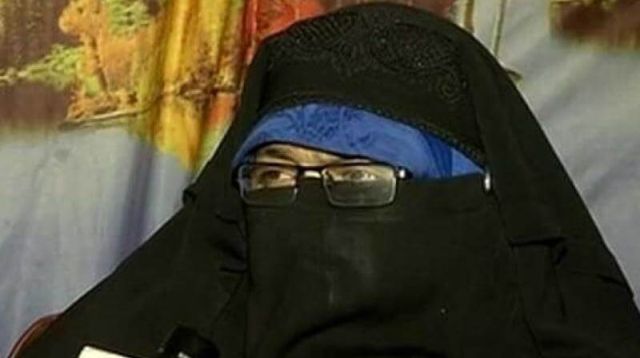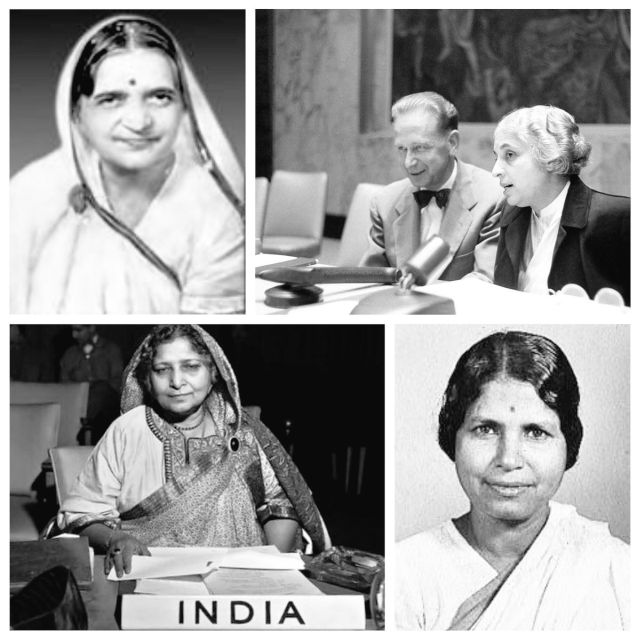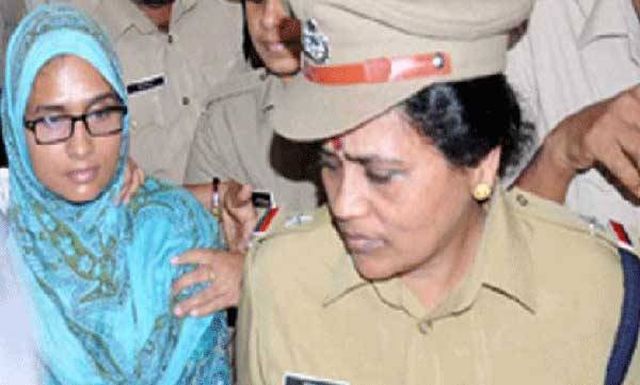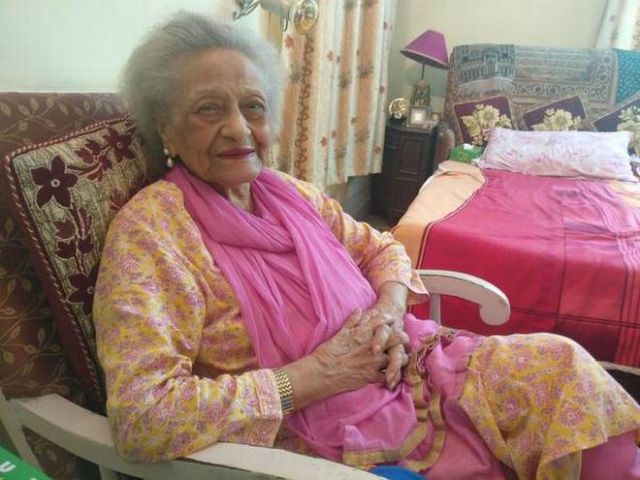
by admin | May 25, 2021 | News, Politics

Asiya Andrabi
Srinagar : The National Investigation Agency (NIA) on Friday summoned a local reporter to Delhi in connection with a case registered against Asiya Andrabi, chief of women’s separatist group “Dukhtaran-e-Milat” (daughters of faith).
Sources said Aquib Javeed, an accredited journalist working with local English daily “Kashmir Observer”, has been summoned to the NIA headquarters in the national capital in connection with the case registered by the agency against Asiya Andrabi.
“It appears you are acquainted with the circumstances of the case which is under investigation by the Superintendent of Police, NIA, New Delhi under Chapter XII code of criminal procedure. You are therefore requested to attend before the undersigned at NIA headquarters on July 15 for the purpose of your examination relating to the case,” the NIA has said in the notice to Aquib.
Asiya Andrabi was arrested by NIA along with two of her associates and shifted to New Delhi on July 6.
—IANS

by admin | May 25, 2021 | Entrepreneurship, News, Politics, Women Entrepreneur

Hansa Mehta, Lakshmi Menon, Begum Hamid Ali and Vijayalakshmi Pandit
By Arul Louis,
United Nations : Four Indian women pioneers at the UN — Hansa Mehta, Lakshmi Menon, Begum Hamid Ali and Vijayalakshmi Pandit — were hailed on Tuesday as role models who worked to champion gender equality at a nascent world organisation.
At a panel discussion here on the Southern Legacy of Women and the Origins of the UN, Rebecca Adami, a senior lecturer at the University of Stockholm, said the push for gender equality came not from Western nations, but from the countries of the South.
She credited Hansa Jivraj Mehta with ensuring the inclusion of women in the UN’s Universal Declaration of Human Rights (UDHR), which in its initial draft spoke only of the rights of the “man” and Eleanor Roosevelt, the champion of human rights from the US, who chaired the drafting committee was oblivious to the omission of women.
“Hansa Mehta, the only female on the Commission on Human Rights besides Eleanor Roosevelt, objects to the use of ‘man’ in the draft arguing that member states can use this to restrict the rights, rather than expand them since women are not considered necessarily included in that wording,” Adami said.
As a result of Mehta’s persistence, the draft was amended to mention “human persons” and “equality of men and women” in the UDHR adopted in 1948.
Adami said that Begum Hamid Ali, the Indian delegate to the UN Commission on the Status of Women in 1947, championed the inclusion of women, whom she had described as the “immense source of wealth lying at the thresholds unused”.
India’s Permanent Representative Syed Akbaruddin said that the Indian women pioneers “served as bridges between the processes of global norm-building at the UN and the institution building processes at the national level” in India.
Mehta was also a member of the Constituent Assembly and the Indian Constitution draws upon several aspects of both the UN Charter and the UDHR, he said.
“The themes of equality, freedom, justice, peace and respect for international law resonated throughout the Indian Constitution that was worked upon around the time that the theme of Human Rights was resonating universally, he said.
Lakshmi Menon, who headed the Commission on Status of Women during 1949-50, “was an outspoken advocate of the ‘universality’ of human rights,” he said.
She, “along with her colleagues from other developing countries, strongly opposed the concept of ‘colonial relativism’, which sought to deny human rights to people in countries under colonial rule,” he added.
Akbaruddin drew attention to the stark contrast between the developing and developed countries in promoting women to positions of authority at the UN.
“While the global North tries to position itself as a leader of gender equality, there have been only three women who have served as the President of the General Assembly – all three have been from the global South,” he said.
The first was Vijayalakshmi Pandit in 1953 and she was followed by Angie Elizabeth Brooks of Liberia in 1969 and Haya Rashed Al-Khalifa of Bahrain in 2006.
(Arul Louis can be reached at arul.l@ians.in)
—IANS

by admin | May 25, 2021 | News
 Kochi (Kerala) : An NIA court here on Saturday sentenced a woman from Bihar to seven years in jail in the first Islamic State (IS) case registered in Kerala.
Kochi (Kerala) : An NIA court here on Saturday sentenced a woman from Bihar to seven years in jail in the first Islamic State (IS) case registered in Kerala.
The case is in connection with 15 persons from Kasargode district who travelled to Afghanistan to join the terror group in 2016.
Yasmin Mohammed Zahid was arrested in Delhi July 30, 2016, when she on her way to leave for Afghanistan with her child.
The case was first registered by the Kerala Police in Kasargode. It was later taken over by the National Investigation Agency.
The agency found evidence of the accused persons activities through their social media accounts.
—IANS

by admin | May 25, 2021 | News, Politics

Begum Hamida Habibullah (file photo)
Lucknow : Former UP minister and one of the most popular faces in the state capital, Begum Hamida Habibullah passed away here on Tuesday morning. She was 102, family sources said.
Daughter of the late Nawab Nazir Yar Jung Bahadur, Chief Justice of the Hyderabad High Court, Begum Hamida was a front-ranking social worker known to the land of Avadh.
Married to Major General Inayat Habibullah, founder commandant of the National Defence Academy, Khadakwasla, Pune.
She joined active politics in 1965 after her husband’s retirement. Begum Hamida served as an MLA from Haidergarh (Barabanki) and was state minister of social and Harijan welfare, national integration and civil defence from 1971-73 and tourism minister from 1971-74.
She was also a member of the Executive Committee of Uttar Pradesh Congress Committee (UPCC) till 1980 and an elected member of the All India Congress Committee (AICC) from 1969.
Begum Hamida served as the president of Mahila Congress, UPCC, from 1972-76 after which she was a member of the Rajya Sabha from 1976 till 1982, a relative informed.
Her burial will take place later on Tuesday at Saidanpur, her native village in Barabanki.
—IANS




